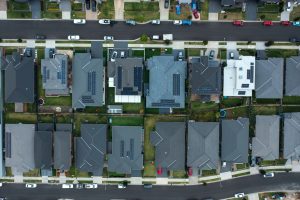Fundamental to statecraft is creating the conditions for the next generation to flourish. Human capital is a country’s most important resource; therefore, the state’s primary purpose is the enhancement of individual capabilities that can compound into an effective whole – creating domestic prosperity and external power. A nation that cannot provide opportunity, well-being and enhanced capabilities for its youth is a nation setting itself up for decline.
For a country to thrive, it needs to get the basics right. Quality education and strong institutions are essential, but at a fundamental level, there is no substitute for affordable housing. Without this, it is almost impossible for people to achieve their potential. And without individual potential, the country’s potential is also severely inhibited.
Australia is currently waging an extraordinary war on its younger generations. In the latest housing affordability report by Demographia International, the country overall is designated “severely unaffordable,” while Sydney (the 2nd least affordable market worldwide), Adelaide (6th), Melbourne (9th) and Brisbane (11th) are all designated “impossibly unaffordable.”
Under the guise of “helping,” the Australian government launched a new assault on Australia’s youth in early October. Until now, the standard deposit a home-buyer needed to provide in Australia was 20 percent of the total value. The government legislated for this to be reduced to 5 percent of the value, selling this as a way for young people to own a home sooner.
Yet, the problem with the scheme is twofold. First, it will induce increased demand, further increasing the cost of housing. And second, a smaller deposit means a bigger loan – saddling young people with even greater debt. The winners here are clearly those looking to sell property, and the banks.
Given how obvious this is, the only conclusion that can be drawn is that the government is purposely seeking to make housing less affordable. Australians currently have the world’s second highest median wealth (after Luxembourg), yet this status has been achieved overwhelmingly by the value of property. Australians are asset-rich, but cash-poor, and any fall in property prices would make Australians less asset-rich, but still cash-poor. The government has decided that the former status is one that needs protecting.
Yet the knock-on effects of this situation are highly detrimental to Australia’s overall economy. The more a person’s income is directed toward servicing a mortgage, the less discretionary spending there is in the economy. This not only affects that ability for restaurants and other forms of entertainment to survive, but also undermines the positive social effect that being active within one’s society creates. Having no ability to do anything other than go to work and pay the bank takes a huge psychological toll. A new report from the Scanlon Foundation highlights that such financial stress is eroding the country’s social cohesion.
Alongside this, without capital to invest, the country’s ability to create new businesses, and most importantly, create new ideas, is limited. Innovation relies on risk, but the ability to take risks without losing one’s house is far too great. People will stay in jobs they don’t like, or not utilize unique skills or pursue visions they may have, which limits Australia’s ability to be a player in emerging technologies and advance the structure of its economy away from an over-reliance on mining.
This is clearly a wicked problem for governments. Sixty-six per cent of households in Australia are owned by their occupants. Although this figure is declining – down from 70 percent two decades ago – it is still an obvious democratic calculation for political parties. Advocating for a decline in property values is electoral suicide. Yet the current property market is so egregiously detrimental to the country’s future that it is deeply irresponsible for governments – at federal, state and council levels – not to address.
Throughout the 20th Century, each generation could confidently expect to live materially better than the previous one. This expectation is now dead. The grim reality for Millennials and Gen Z is that their material comfort will most likely rely on their parents’ death. Or, if their parents can afford it, a pre-death inheritance to assist with homeownership. While parents are often happy to help, it’s a leg up that shouldn’t be necessary.
There is a social contract here that has been torn up in Australia. A country should understand its legitimacy as being based on the opportunities it offers its citizens. Its youth should be able to see a bright future for themselves. Effort should come with a reward. Yet effort for many young Australians now seems futile.





























